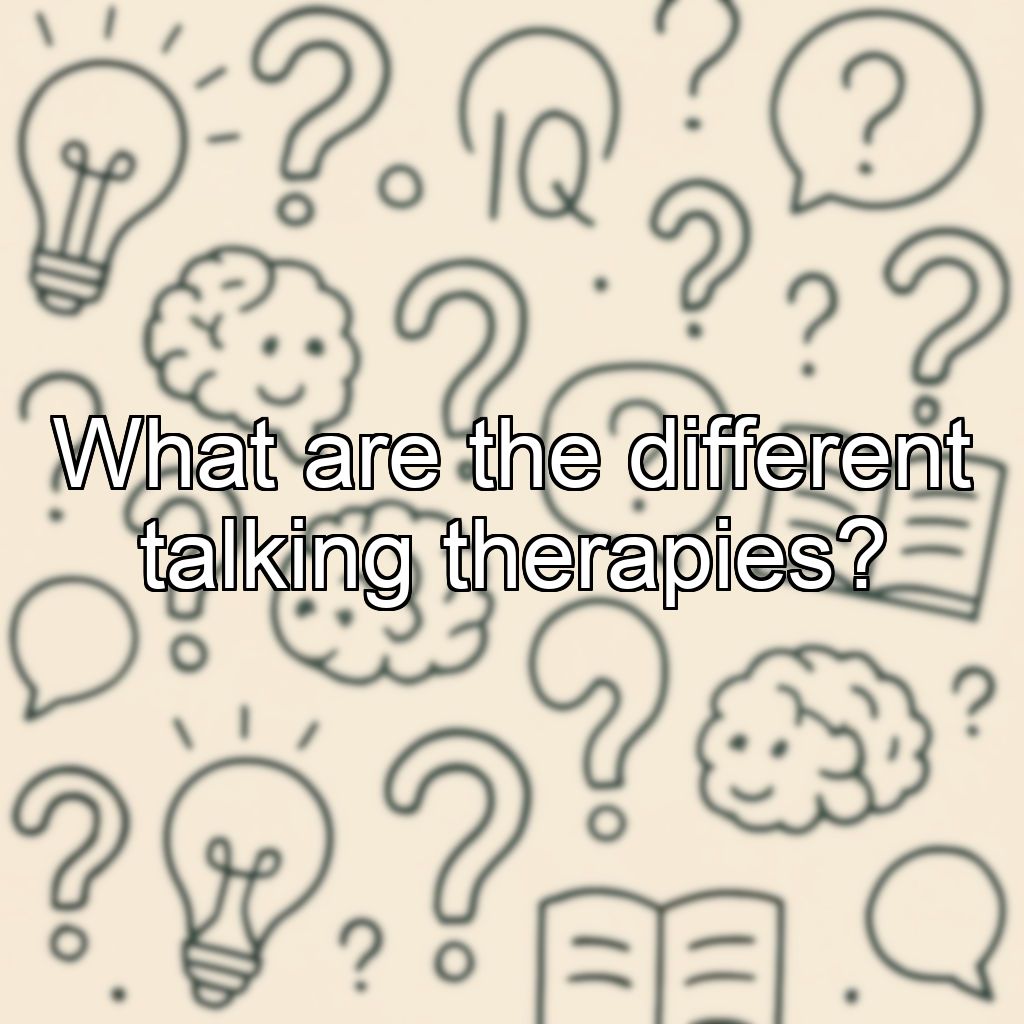What are the different talking therapies?

Talking Therapies
Talking therapies are psychological treatments that involve discussing thoughts, feelings, and behaviors with a trained professional to improve mental health and well-being. There are various types of talking therapies, each with different approaches and techniques. Some of the most common include:
1. Cognitive Behavioral Therapy (CBT)
This therapy focuses on identifying and changing negative thought patterns and behaviors that contribute to mental health issues such as depression and anxiety. It is often structured and goal-oriented.
2. Psychodynamic Therapy
Based on the theories of Freud, this therapy explores unconscious thoughts and past experiences that influence current behavior and emotions. It aims to increase self-awareness and resolve internal conflicts.
3. Humanistic Therapy
This approach emphasizes personal growth and self-actualization. Techniques like person-centered therapy focus on providing a supportive environment where individuals can explore their feelings freely.
4. Dialectical Behavior Therapy (DBT)
A form of CBT designed to help regulate emotions and improve interpersonal relationships, often used for borderline personality disorder and emotional dysregulation.
5. Mindfulness-Based Therapies
These therapies incorporate mindfulness practices to help individuals become more aware of their thoughts and feelings in the present moment, reducing stress and improving emotional regulation.
6. Interpersonal Therapy (IPT)
This therapy focuses on improving interpersonal relationships and social functioning to reduce symptoms of depression and other mood disorders.
7. Acceptance and Commitment Therapy (ACT)
ACT encourages individuals to accept their thoughts and feelings rather than fighting them, and commit to actions aligned with their values.
Each therapy type is suited to different issues and personal preferences, and a mental health professional can help determine the most appropriate approach.